EU-India FTA: Agriculture Biggest Hurdle - German VC Habeck
By Rediff Money Desk, New Delhi Oct 24, 2024 23:31
German Vice Chancellor Robert Habeck highlights agriculture as the main obstacle in the EU-India Free Trade Agreement negotiations, citing differences in agricultural systems. He also discussed the importance of the Asia-Pacific Conference of German Business and the EU's Carbon Border Adjustment...
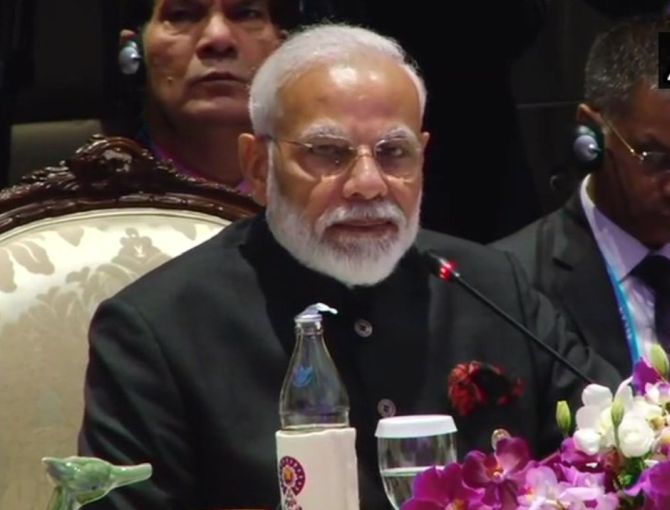
New Delhi, Oct 25 (PTI) German Vice Chancellor Robert Habeck on Thursday said from his point of view, agriculture is the "most problematic area" when it comes to the negotiations for a free trade agreement between India and the European Union.
Habeck, also Germany's Federal Minister for Economic Affairs and Climate Protection, interacted with reporters here soon after his arrival in India ahead of the upcoming visit of Chancellor Olaf Scholz to India.
In response to a query on India's position on the Russia-Ukraine conflict, he said, "We know exactly where India is standing on this."
"In my perspective, the war from Russia on Ukraine is a war against democracy. I think we should unite against these attempts," the German vice chancellor said.
During the press conference, attended by a large number of German journalists, he also spoke of the importance of 18th Asia-Pacific Conference of German Business that will take place on October 25-26 in New Delhi.
More than 800 delegates and CEOs of top German firms such as Mercedes and Siemens are slated to attend the biannual conference, the last being held in Singapore.
"This conference couldn't have been more timely. We are living in a world that is changing at a tremendous speed, and not always for the better. We see that in a globalised world, open markets and trade, where dominant history of the world are fragmented by the day," Habeck said.
The German vice chancellor said there are challenges today to trade, and this conference in a way is "giving a countersign."
"The Indo-Pacific is the most dynamic economic area in the world. Complex geopolitical challenges are developing and unfolding there as if in fast motion. It is also the most populous, most heterogeneous, most diverse region in the world," he was quoted as saying in an official statement issued later.
Therefore, Indo-Pacific is "immense geostrategic importance" for Germany, he added.
Habeck thanked Chancellor Scholz and Prime Minister Narendra Modi as they are slated to participate in the Asia-Pacific Conference of German Business here.
At the press conference, he was asked about the long-stalled EU-India FTA negotiations and major roadblocks in their consummation.
"From my point of view, agriculture is the most problematic area of the negotiations," Habeck said.
For example, in Germany, only two per cent of people are working in the agriculture sector, but in India, it is more than 60-70 per cent, he said, adding, "We cant compare the two agricultural systems."
The Free Trade Agreement negotiations between India and the EU were initiated in 2007, but are at a standstill since 2013 due to disagreements on various significant matters.
It has been negotiated for the past about 20 years, and it is better to take "first steps" even if these are "small steps" than not going anywhere, he added.
On migration, he said, "We don't want to steal your (Indian) talent...If they can work for 8-10 or more years (in Germany), and come back with knowledge, both countries could benefit."
He was also asked about the EU's Carbon Border Adjustment Mechanism (CBAM).
The EU aims to be climate-neutral by 2050, and "change is underway."
The CBAM's key objective to is reduce carbon emissions, put a fair price on the carbon emitted in the production of carbon intensive goods imported into the EU, and encourage a cleaner industrial production according to the Paris Agreement and the EU Fit for 55 package.
The CBAM or carbon tax (a kind of import duty) will come into effect from January 1, 2026. It will initially be imposed on seven carbon-intensive sectors, including steel, cement, fertiliser, aluminium and hydrocarbon products.
CEO of Siemens, Roland Busch also interacted with media at the press conference held at the residence of the German ambassador in India.
Habeck, also Germany's Federal Minister for Economic Affairs and Climate Protection, interacted with reporters here soon after his arrival in India ahead of the upcoming visit of Chancellor Olaf Scholz to India.
In response to a query on India's position on the Russia-Ukraine conflict, he said, "We know exactly where India is standing on this."
"In my perspective, the war from Russia on Ukraine is a war against democracy. I think we should unite against these attempts," the German vice chancellor said.
During the press conference, attended by a large number of German journalists, he also spoke of the importance of 18th Asia-Pacific Conference of German Business that will take place on October 25-26 in New Delhi.
More than 800 delegates and CEOs of top German firms such as Mercedes and Siemens are slated to attend the biannual conference, the last being held in Singapore.
"This conference couldn't have been more timely. We are living in a world that is changing at a tremendous speed, and not always for the better. We see that in a globalised world, open markets and trade, where dominant history of the world are fragmented by the day," Habeck said.
The German vice chancellor said there are challenges today to trade, and this conference in a way is "giving a countersign."
"The Indo-Pacific is the most dynamic economic area in the world. Complex geopolitical challenges are developing and unfolding there as if in fast motion. It is also the most populous, most heterogeneous, most diverse region in the world," he was quoted as saying in an official statement issued later.
Therefore, Indo-Pacific is "immense geostrategic importance" for Germany, he added.
Habeck thanked Chancellor Scholz and Prime Minister Narendra Modi as they are slated to participate in the Asia-Pacific Conference of German Business here.
At the press conference, he was asked about the long-stalled EU-India FTA negotiations and major roadblocks in their consummation.
"From my point of view, agriculture is the most problematic area of the negotiations," Habeck said.
For example, in Germany, only two per cent of people are working in the agriculture sector, but in India, it is more than 60-70 per cent, he said, adding, "We cant compare the two agricultural systems."
The Free Trade Agreement negotiations between India and the EU were initiated in 2007, but are at a standstill since 2013 due to disagreements on various significant matters.
It has been negotiated for the past about 20 years, and it is better to take "first steps" even if these are "small steps" than not going anywhere, he added.
On migration, he said, "We don't want to steal your (Indian) talent...If they can work for 8-10 or more years (in Germany), and come back with knowledge, both countries could benefit."
He was also asked about the EU's Carbon Border Adjustment Mechanism (CBAM).
The EU aims to be climate-neutral by 2050, and "change is underway."
The CBAM's key objective to is reduce carbon emissions, put a fair price on the carbon emitted in the production of carbon intensive goods imported into the EU, and encourage a cleaner industrial production according to the Paris Agreement and the EU Fit for 55 package.
The CBAM or carbon tax (a kind of import duty) will come into effect from January 1, 2026. It will initially be imposed on seven carbon-intensive sectors, including steel, cement, fertiliser, aluminium and hydrocarbon products.
CEO of Siemens, Roland Busch also interacted with media at the press conference held at the residence of the German ambassador in India.
Source: PTI
Read More On:
DISCLAIMER - This article is from a syndicated feed. The original source is responsible for accuracy, views & content ownership. Views expressed may not reflect those of rediff.com India Limited.
You May Like To Read
TODAY'S MOST TRADED COMPANIES
- Company Name
- Price
- Volume
- G G Engineering
- 2.13 (+ 12.11)
- 70001344
- Vodafone Idea L
- 7.67 ( -5.66)
- 68482952
- Srestha Finvest
- 0.66 ( -4.35)
- 32525731
- GTL Infrastructure
- 1.98 ( -4.81)
- 26692659
- AvanceTechnologies
- 0.82 (+ 2.50)
- 23608944
MORE NEWS

Punjab Paddy Procurement: Union Minister Bittu...
Union Minister Ravneet Singh Bittu met with FCI officials in Punjab to review paddy...
Beer Makers Urge Karnataka to Withdraw Draft...
Beer Association of India (BAI) urges Karnataka government to withdraw draft...

Surety Bonds: Regulatory Changes Key for Growth...
Experts highlight regulatory changes needed to boost surety bond market in India,...



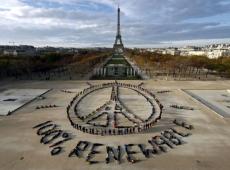
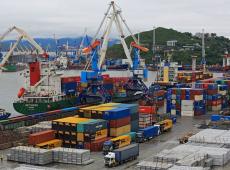
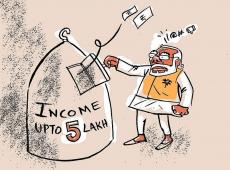
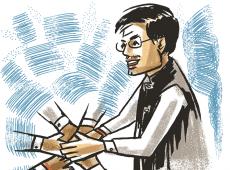
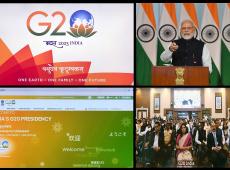
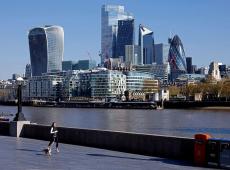
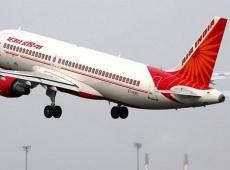
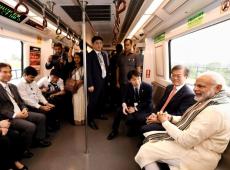
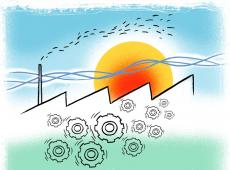
 © 2024 Rediff.com India Limited. All rights reserved.
© 2024 Rediff.com India Limited. All rights reserved.